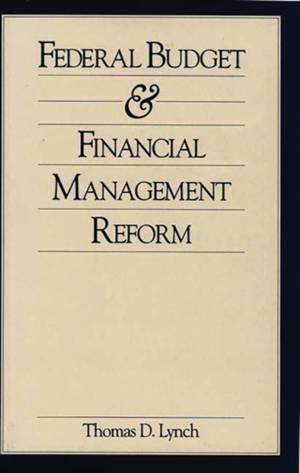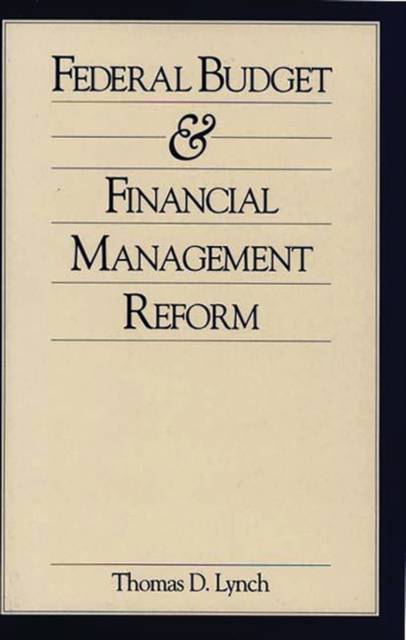
Vous voulez être sûr que vos cadeaux seront sous le sapin de Noël à temps? Nos magasins vous accueillent à bras ouverts. La plupart de nos magasins sont ouverts également les dimanches, vous pouvez vérifier les heures d'ouvertures sur notre site.
- Retrait gratuit dans votre magasin Club
- 7.000.000 titres dans notre catalogue
- Payer en toute sécurité
- Toujours un magasin près de chez vous
Vous voulez être sûr que vos cadeaux seront sous le sapin de Noël à temps? Nos magasins vous accueillent à bras ouverts. La plupart de nos magasins sont ouverts également les dimanches, vous pouvez vérifier les heures d'ouvertures sur notre site.
- Retrait gratuit dans votre magasin Club
- 7.000.0000 titres dans notre catalogue
- Payer en toute sécurité
- Toujours un magasin près de chez vous
161,45 €
+ 322 points
Description
A collection of original essays by specialists in the field, this book examines the crucial budgetary and financial management problems that face the United States government and makes concrete recommendations on how current processes can be improved. The authors make it clear that although the present federal budgetary and financial management systems are not working, the case is far from hopeless.
Several chapters analyze the flaws in the federal budget-making process that lead to deadlock between the president and Congress and ultimately to higher deficits. To remove the checks and balances system from its present political stalemate, a workable two-stage budgetary process is suggested and bipartisan action at the highest level is strongly urged. Another chapter explains the context in which forecasting is used in federal government budget making and addresses the problem of the failure to predict the yearly budget deficit with reasonable accuracy. Proposals for improving public financial management include centralizing financial management functions, improving debt collection practices, eliminating deficiencies in the application of information technology, and privatizing entities such as the postal service, AMTRAK, and Social Security. Providing clarification of complex issues together with constructive approaches to reform, this book will be of interest to both general readers and scholars, students, and professionals concerned with government, public policy, and financial management.Spécifications
Parties prenantes
- Auteur(s) :
- Editeur:
Contenu
- Nombre de pages :
- 232
- Langue:
- Anglais
Caractéristiques
- EAN:
- 9780899305387
- Date de parution :
- 30-08-91
- Format:
- Livre relié
- Format numérique:
- Genaaid
- Dimensions :
- 167 mm x 244 mm
- Poids :
- 562 g







